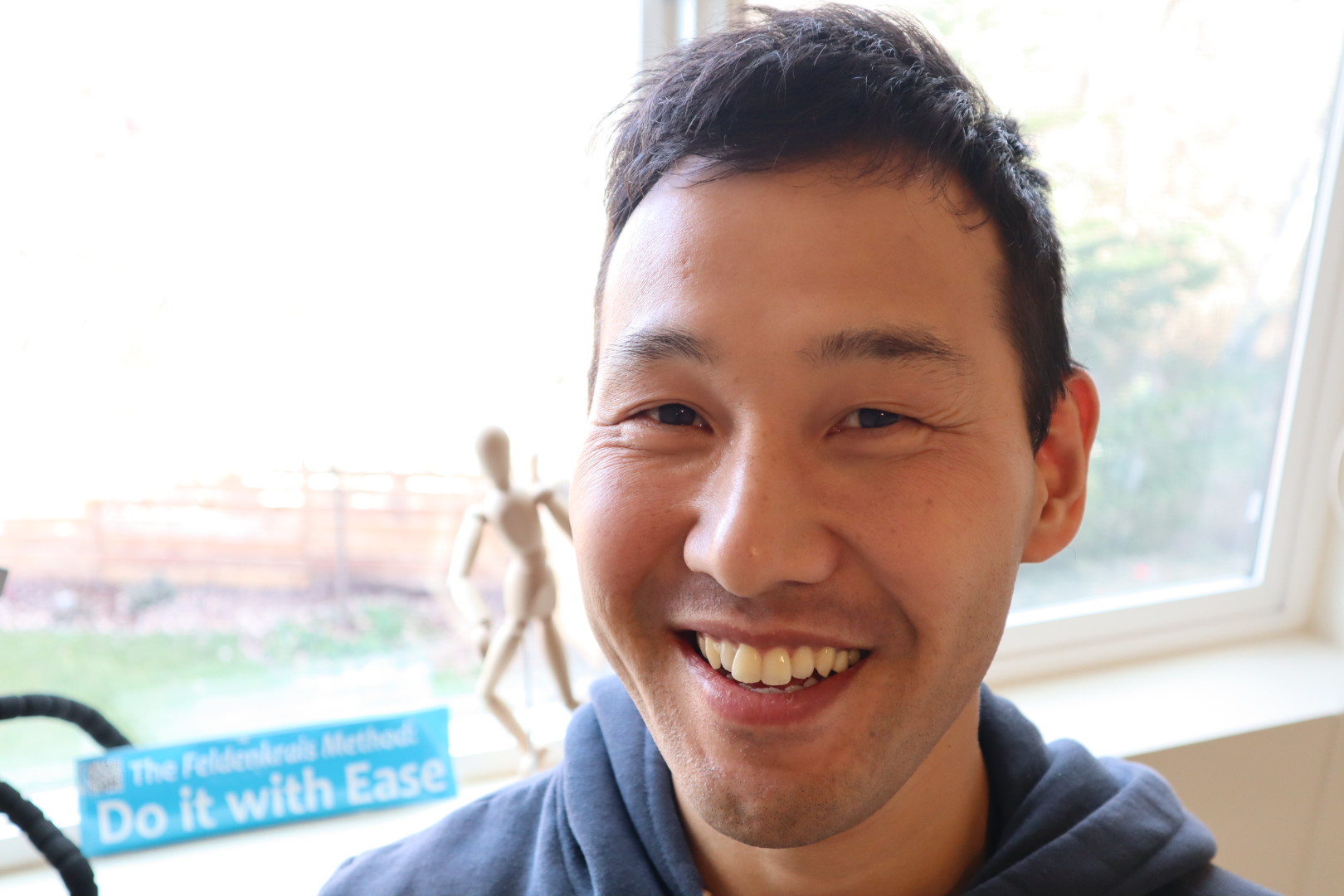Got Balance Problems? Try the Feldenkrais Method to Improve your Balance and Confidence and Reduce Fear of Falling and Anxiety
/Are you afraid of falling? Perhaps you have noticed a change in your ability to balance recently. Perhaps you think that these changes are just a natural part of aging, or because of a recent injury or diagnosis.
Here's the typical scenario: As people’s balance declines, they start to feel less confident and start to restrict their movement patterns, including breathing. They start to move more rigidly, holding muscular tension as if already bracing for a fall. Unfortunately, these changes in movement patterns have a negative effect on their ability to remain upright. They sacrifice the ability to react quickly to disturbances to their balance, and to move freely to regain it. Therefore they are much more likely to lose their balance and fall. Statistically, fear of falling is one of the greatest causes of falling in older adults.
Once they have experienced a fall, they become even more rigid. Their nervous system is traumatized, so they feel more anxiety and fear of falling. Physical balance and emotional balance are closely related. In other words, if you can improve your sense of balance, you can improve your confidence, feel more stable, and feel less anxious and fearful of falling. When you are not afraid of falling, you will find yourself less afraid of failing, or trying new things, even meeting new people. Your physical resilience and your mental and emotional state are intimately connected. It's not too late to bring balance back into your life.
When you hear the term "balance exercises," what comes to mind? Perhaps balancing on one leg? Walking on a straight line?
Traditional balance exercises involve challenging your balance in standing. "Good balance" is determined by how long you can hold a certain position without losing balance, or how well you can maintain your stability while performing balance activities. While many disciplines such as physical therapy, yoga, personal training, and Tai Chi work with balance in this way, the Feldenkrias Method of somatic education approaches balance with a unique perspective.
Feldenkrais teachers look at how you use your whole body to adjust your balance continuously: in other words, coordination. Balance is dynamic, not static. You are constantly moving even when you're standing still, though you may not be aware of it. Therefore, improving balance is not about learning to hold your body still in place. It is about improving whole body coordination so you can constantly adjust your center of mass over the base of support .
You become more rigid and hold your breath when your nervous system perceives you might be falling, which is then felt as fear and anxiety. It really doesn't help to increase your effort to maintain balance by contracting more muscles and making your body more rigid because it will only decrease your freedom to move.
Most “balance exercises” in a standing position can reinforce your tendencies to contract muscles, restrict breathing, become rigid, and feel anxiety and fear. In the Feldenkrais Method, the teacher may interrupt your habitual patterns by working in other orientations, like sitting in a chair or lying down. In the lessons, you will experience the feeling of both your center of mass and base of support, and how they relate to improve your coordination and safety.
Try this short movement exploration of balance and counter-balance. All you need is a sturdy chair and a beach towel or blanket. Check your sense of balance before, and after. What were the results?
Sensory awareness, with gentle movement coordination, will keep you flexible and responsive to changes so that you can regain your balance more easily. Contact a Feldenkrais Practitioner near you as part of your falls-prevention plan.
Let me know what you think. Please leave your comments/questions/feedback.
Please check my YouTube channel to find more balance exercises:
Get help to improve your balance and confidence!
Movement is essential to our life. Improving movement quality is directly related to quality of our life. Teaching people to move well is my passion. Sign up for Trans4Move Newsletters that will teach you how to improve your movements, functions, and your life!
My name is Taro Iwamoto. I am a Feldenkrais practitioner and movement expert. I help people develop new and more efficient movement patterns and expand movement options in order to overcome injuries/pain and move beyond limits. Feel free to post in the comments section below and feel free to share this with your friends!



